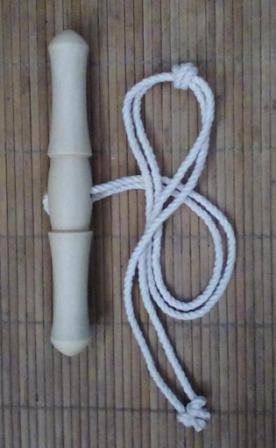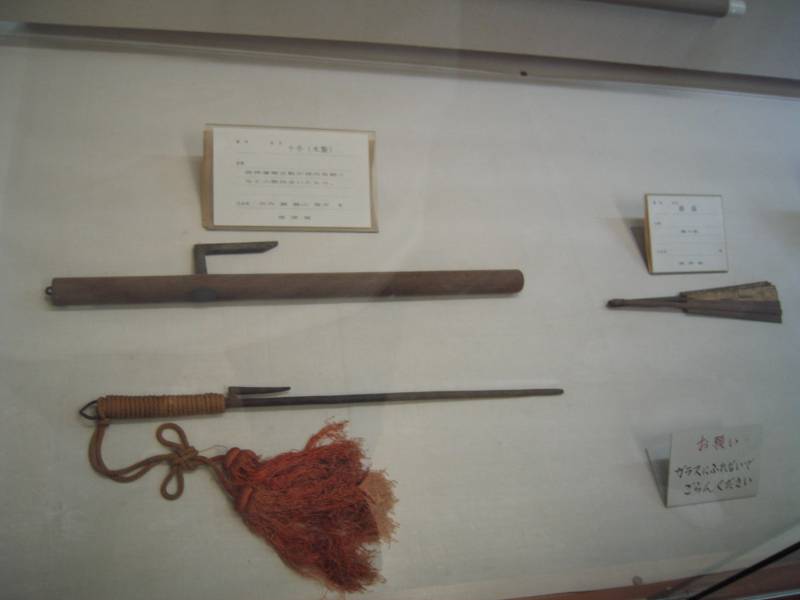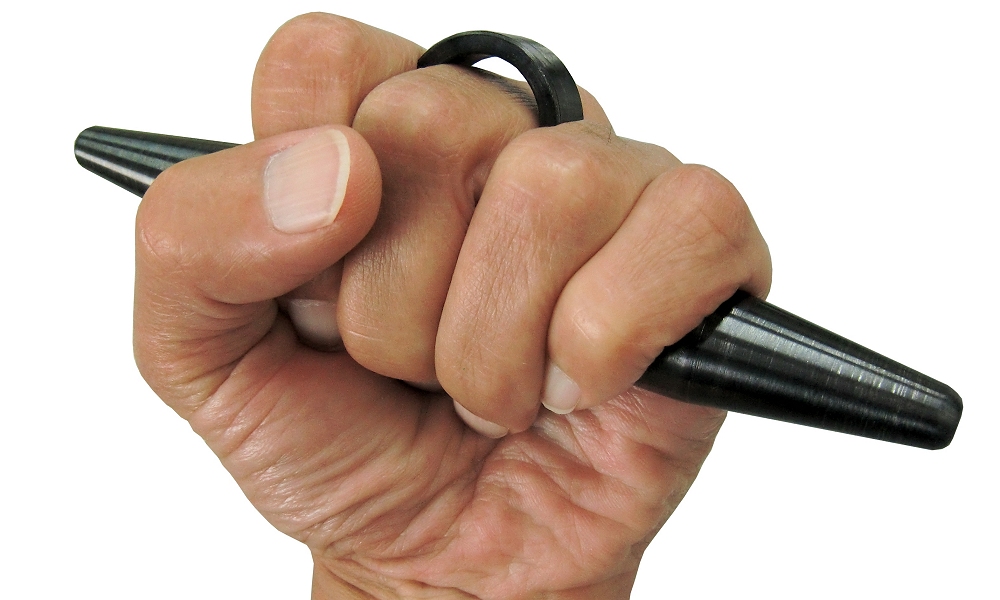DougNZ wrote:... One of the greatest things I have learnt is to see the beauty and sophistication in simple movement. ...
I couldn't agree more. IMHO, real (technical) mastery is displayed, if, when watching, or feeling such kind of simple movement(s), produces the "wow-effect", rather than any (allegedly) "high level", complicated, or even artistic techniques.
I also don't object to what you wrote about arousal levels and their effects. Scientific evidence more than enough has been provided for that already.
I just think, that an essential goal of the education of bushi was to achieve a mindset, that kept that level rather low, regardless of circumstances, and even in mortal danger. Perhaps "development of sangfroid" may be a proper description and expression, and I believe that it begun at a very young age. The virtually proverbial admonition: "What only are you going to do, if you have to perform seppuku?" of samurai-mothers to "overreacting" children seems to underline that. Additionally, I think especially during the times of constant warfare, there often simply was not enough time to teach or learn anything else but those type of techniques, you allude to, and the training of the mental state had to begin very, very early, to pay off in time. Of course, I don't know how often the goal was really achieved at all.
According to an old story (albeit from the later time, called Edo-period), addressing that goal, it doesn't seem to have happened all too often. Perhaps, now it is time to once again repeat that record from the German edition of D. T. Suzuki's "Zen in the Japanese culture", I've cited already in another thread:
"To quote one of the stories cited in the Hagakure: Yagyū Tajima no kami Munenori was a great swordsman and teacher in the art to the shōgun of the time, Tokugawa Iyemitsu. One of the personal guards of the shōgun one day came to Tajima no kami wishing to be trained in swordplay. The master said, "As I observe, you seem to be a master of the art yourself; pray tell me to what school you belong, before we enter into the relationship of teacher and pupil."
The guardsman said, "I am ashamed to confess that I have never learned the art."
"Are you going to fool me? I am teacher to the honourable shōgun himself, and I know my judging eye never fails."
"I am sorry to defy your honour, but I really know nothing." This resolute denial on the part of the visitor made the swordsmaster think for a while, and he finally said, "If you say so, that must be so; but I am still sure of your being master of something, though I don't know of just what."
"Yes, if you insist, I will tell you this. There is one thing of which I can say I am complete master. When I was still a boy, the thought came upon me that as a samurai I ought in no circumstances to be afraid of death, and ever since I have grappled with the problem of death now for some years, and finally the problem has entirely ceased to worry me. May this be what you hint at?"
"Exactly!" exclaimed Tajima no kami. "That is what I mean. I am glad I made no mistake in my judgement. For the ultimate secrets of swordsmanship also lie in being released from the thought of death. I have trained ever so many hundreds of my pupils along this line, but so far none of them really deserve the final certificate for swordsmanship. You need no technical training, you are already a master."
Undoubtedly somebody, who is ready to give his live at any time without hesitation, and doesn't even mind, can do a lot, the most, even everything he is physically able to do, and even under the most dreadful circumstances, because he simply never reaches the highest, the "band black" level - for psychical reasons, at least. My point therefore is, that those restrictions, owed to a highly increased arousal level, simply did (do) not apply under those conditions.
BTW, relics of that seem to have been inherited even into gendai budō. I regard the same, calm attitude required from a budōka (which is so often neglected, nowadays) after either winning or loosing in competition, to be, not least, a remote reminder about that calm mindset and composure.
But, OTH, that (also) psychical conditions like the "arousal levels" we talked about, are indicated by the physical phenomenon of "heart rate", which is, regardless of any psychical and emotional discomposure, also a sign for the level of cardiovascular fitness, to me, is also a striking proof for the fact, that physical AND mental training always have to go hand in hand for optimal results. Something that hardly can be fully provided within the realm of contemporary club training, but has to be 1. accepted as necessity for real mastership of a martial art, and 2. strived for, by the individual itself throughout it's life, after that acceptance. Otherwise, one should be realistic enough, to accept mastership of such an art to be out of individual range. Of course, that certainly doesn't mean, that practice can't give pleasure or be meaningful nevertheless, or can't even be helpful in specific cases of emergency. One just can't be able to reach the real peak, and is well advised to accept that (not only, but also regarding the question, which grade could be adequate, for oneself). Realism is always a good thing.
Regarding the question what works best if we get older, we're on the same track again, I think, becoming 60 this year.













